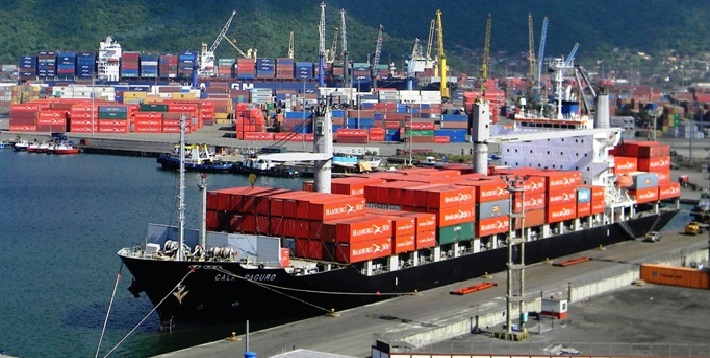
EspañolOpposition congresswoman Neidy Rosal claims the Nicolás Maduro administration imported 131,844 tons of food in August, and is hoarding the shipment ahead of December’s elections.
While imports of basic foodstuffs dropped significantly in the first seven months of 2015 compared with the previous year, Rosal tells the PanAm Post that the government has recently imported products from Brazil, Canada, Mexico, Nicaragua, El Salvador, and the United States.
She says the Maduro government is storing the food at different ports in the country and plans to use the imports during the campaign to “make Venezuelans believe they have overcome the supposed economic war.”
“It happens just before the elections, to supposedly show that the government is fighting the economic war, and that closing the border was worth it. But those are all lies,” says the Carabobo state legislator, who in 2011 discovered that 160,000 tons of rotten food were being stored at the Puerto Cabello port.
[adrotate group=”8″]
Rosal says the imported food could only feed Venezuelans for two or three months, and expects shortages to worsen. She believes the government should instead focus on stimulating domestic production.
While most supermarket shelves remain empty, the congresswoman says the government is currently storing chicken, meat, milk, butter, sugar, wheat, coffee, soy oil, and rice. Rosal notes that another 56,000 tons of dairy products are en route from Uruguay, as part of a debt settlement signed earlier this year.
“The information we have is that the products being imported from Uruguay are overpriced,” she says, adding that the Venezuelan government, at the time, estimated the price of oil at US$60 per barrel, when in reality it was between $30 and $40.
Food Minister Carlos Osorio, who former President Hugo Chávez sacked for his involvement in the spoiled food scandal of 2011, is running the import operation through Corporación Casa.
As plummeting oil prices continue to take their toll on the economy, Rosal questions the government’s motives to import finished products, rather than cheaper raw materials that would allow local factories to produce.
“It looks like a policy to rein in the distribution of food and control the public.… If today they require Venezuelans to show ID to shop for groceries, tomorrow they’ll require party membership.”
Food Costs Rising
A family of five living in Venezuela needed 28,363.22 Bs. (US$40) to buy enough food for one month during the month of July, an increase of 32.6 percent compared to the previous month, according to the Documentation and Analysis Center for the Workers (CENDA).
CENDA General Director Ylva Rosa Mora told local daily Notitarde that a Venezuelan family now needs 3.8 minimum-wage salaries to make ends meet, and food costs have increased three-fold over the last year.
Meanwhile, Venezuelan businessmen insist that producing goods in Venezuela remains cheaper than importing finished products.
Aquiles Hopkins, vice president of the Confederation of Agricultural Producers (Fedeagro), says that the policy to import finished goods instead of raw materials merely provides short-term relief to long-term shortage problems.
Damiano del Vescovo, president of Fedecámaras in Carabobo state, believes the current government policy contributes to the “wasting of scarce foreign currency.”
He claims that for every dollar the government spends abroad, supporting foreign governments and companies, Venezuelan businessmen could produce five times the amount purchased. Instead, he says, the government pays five times more to import food that could be produced in Venezuela.
Government Accountability
Rosal says those elected to the National Assembly on December 6 must hold the government accountable for the shortages and the poor productivity of nationalized companies.
“The government owns 10 of the 16 main sugar-producing companies, and there is no sugar or sugar cane available,” she claims. “They nationalized slaughter houses in Bolívar state, but now they import meat.”
“If we had a government working for the people, it would incentivize domestic industry,” she concludes.
 Versión Español
Versión Español












